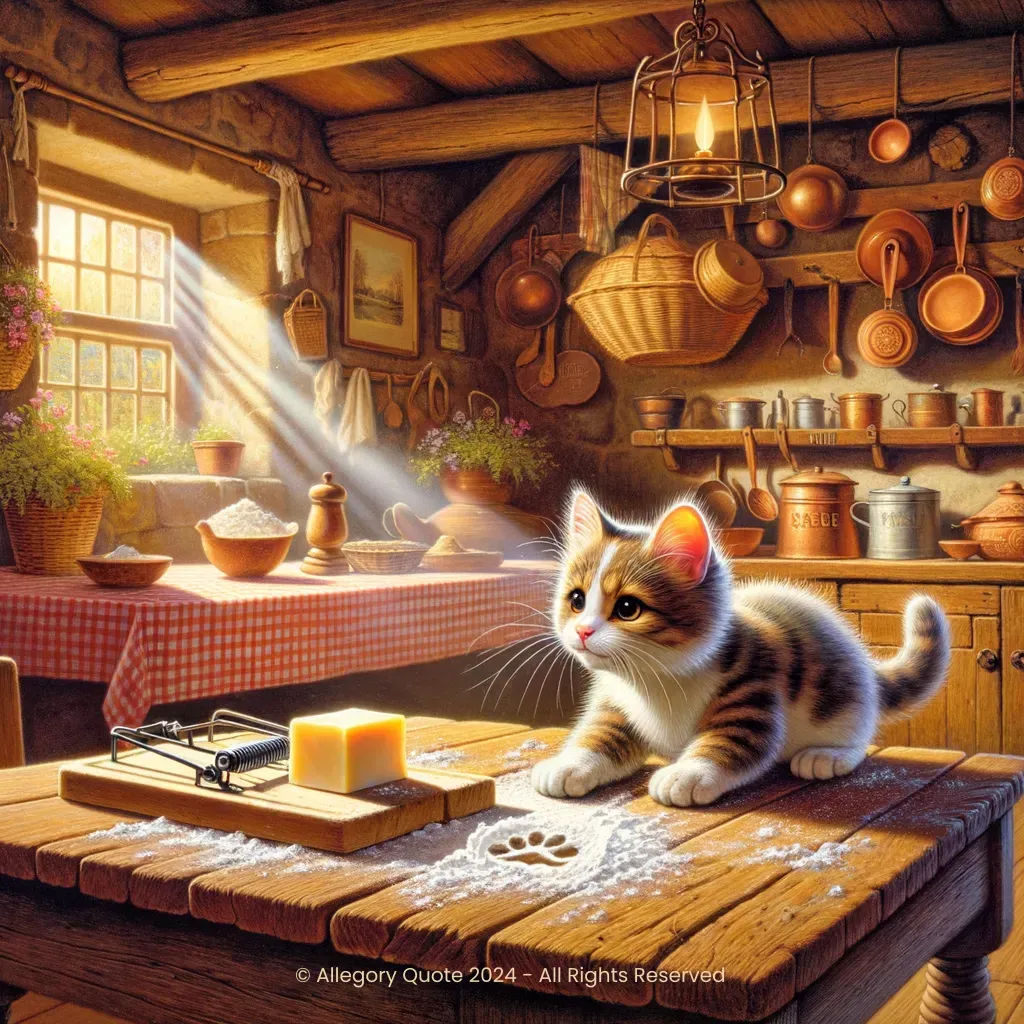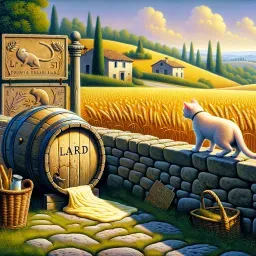”So often the cat goes to the
lard that it leaves its paw print“

0
0
0
0
- Meaning
- The meaning of the proverb "So often the cat goes to the lard that it leaves its paw print" is that someone who constantly exposes themselves to dangerous situations or tries to do something wrong will eventually suffer the negative consequences of their actions. The "cat" symbolically represents someone trying to get something tempting (the "lard") without being noticed, but due to its persistence and frequency, it ends up being discovered and leaving a tangible mark (the "paw print"). The phrase underscores the inevitability of the consequences of one's actions.
- Allegory
- In the allegorical image, the cat represents the insistent and cunning person, while the lard symbolizes the desired but risky reward. The mouse trap near the lard serves as a warning of the negative consequences. The small paw print in the flour represents the repetitive presence of the cat, which could eventually cost it dearly. The familiar and cozy setting with rustic details underscores the typically homely and traditional environment, making the proverb's message even more relevant and understandable.
- Applicability
- This proverb can be applied to numerous daily life situations. It could be used as a warning to those who tend to behave recklessly or break the rules, suggesting that if they continue down that path, there will be negative repercussions. In other words, it can serve as a caution to reflect on one's behavior and decisions, avoiding constantly testing one's luck.
- Impact
- This proverb has had a significant impact on Italian culture for its ability to synthesize a universal truth and transmit popular wisdom in a simple and effective way. It is frequently cited in everyday conversations and speeches to emphasize the inevitability of the consequences of actions. It has also influenced other expressions and sayings with a similar meaning in the Italian linguistic landscape.
- Historical Context
- The proverb likely dates back several centuries, as the linguistic form and cultural elements (cats, lard) indicate a rural and peasant origin, typical of pre-industrial Italy. Such proverbs were widespread in environments where daily life revolved around the family, manual labor, and the management of domestic animals, in historical moments when popular wisdom was transmitted orally from generation to generation.
- Criticisms
- Criticism of the proverb may arise from the fact that it can be seen as an excessive and pessimistic generalization. Some might argue that not all people who take risks or engage in morally questionable actions necessarily suffer negative consequences, or that the proverb underestimates the possibility of change and redemption.
- Variations
- Variations of the phrase with the same meaning exist in different cultures. In English, an expression that captures a similar concept is "Curiosity killed the cat," which warns against the risks of curious or intrusive behavior. Although it is less direct, the underlying concept is that reckless or dangerous behavior leads to negative consequences.
-

Vox populi, vox Dei.
-

Alea iacta est
-

The more the cat goes to the lard, the more likely it is to lose a paw.
-

Time and tide wait for no man.
-

Bird of ill omen.
-

It's a piece of cake.
-

What's done cannot be undone.
-

Aut vincere aut mori.
No Comments